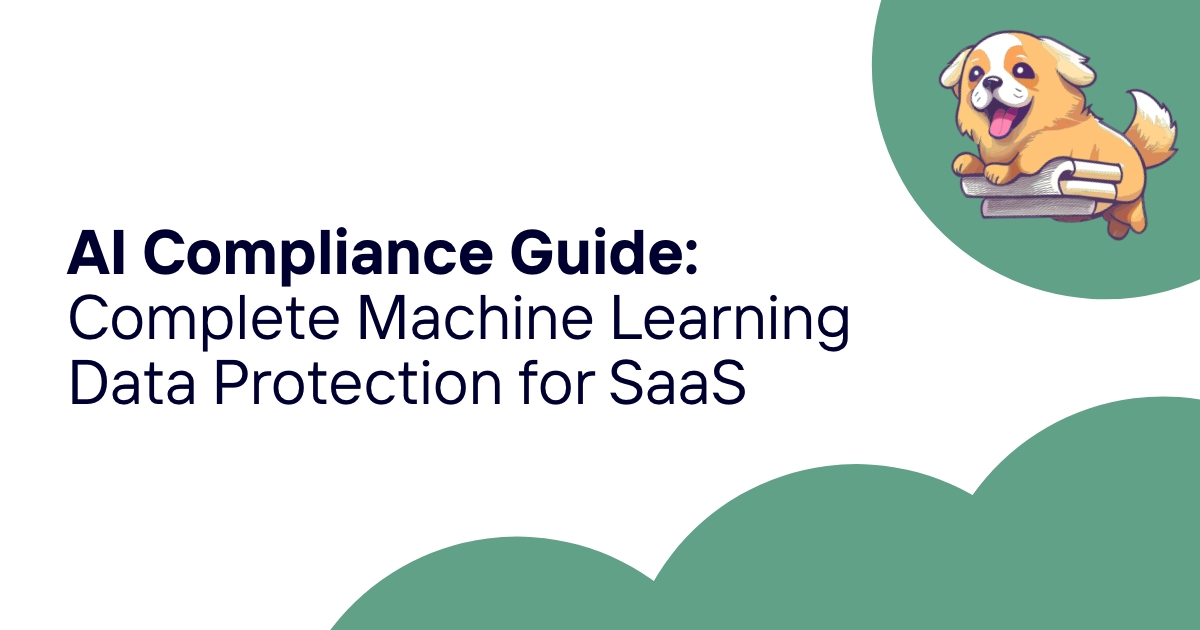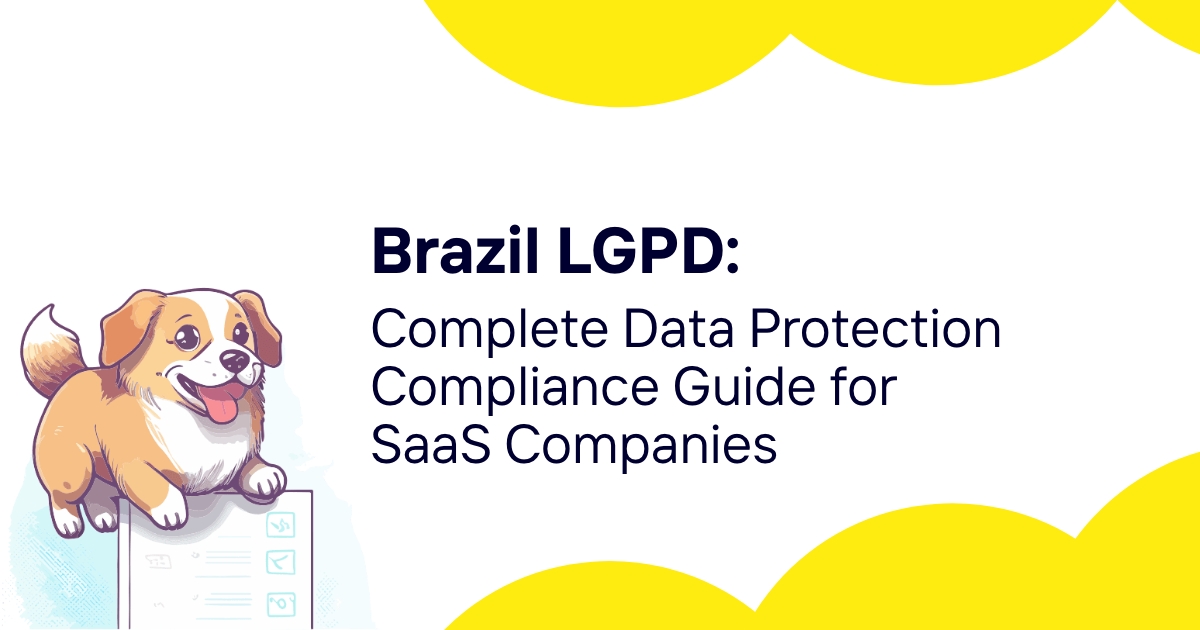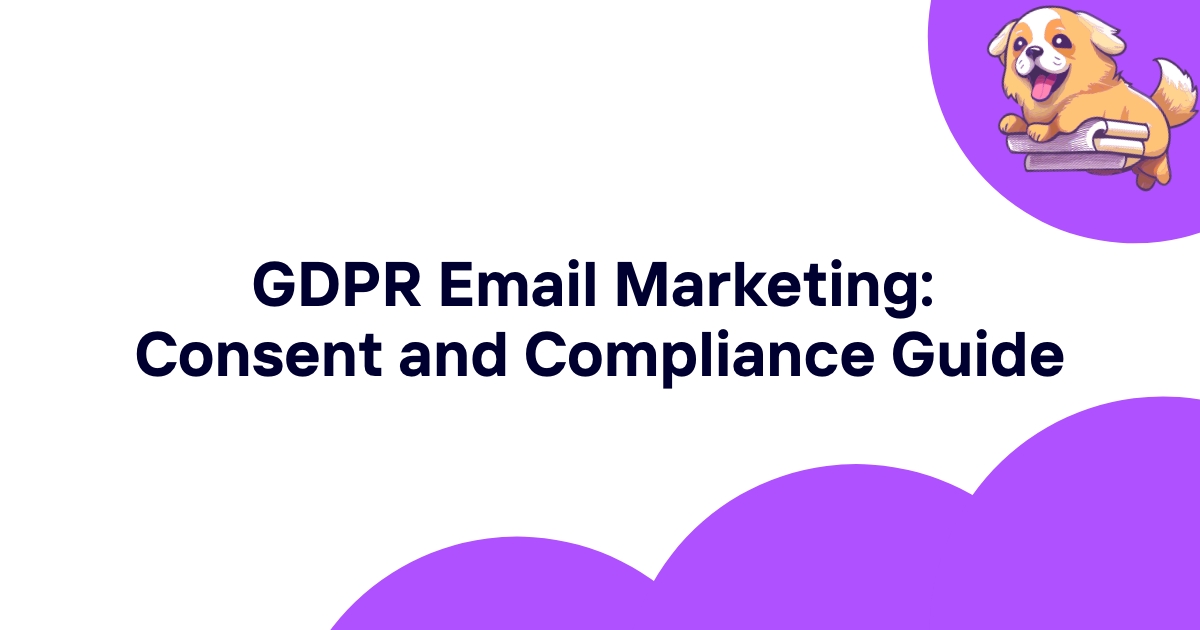AI and machine learning integration in SaaS platforms creates complex compliance challenges that require understanding how automated decision-making, algorithmic processing, and data-driven insights intersect with privacy regulations, fairness requirements, and transparency obligations throughout AI system development and deployment. Modern SaaS companies must navigate evolving AI governance frameworks while maintaining innovation and competitive advantages.
The complexity of AI compliance lies in balancing algorithmic sophistication with explainability requirements, ensuring fair and unbiased outcomes while leveraging predictive capabilities, and protecting personal data throughout machine learning pipelines that process extensive customer information for business intelligence and service personalization.
AI systems in SaaS environments often make automated decisions about customer pricing, service recommendations, fraud detection, and user experience customization that directly affect individuals and require compliance with GDPR's automated decision-making provisions, algorithmic accountability frameworks, and emerging AI governance regulations.
SaaS companies implementing AI compliance gain competitive advantages through enhanced customer trust, reduced algorithmic bias risks, improved regulatory positioning, and sustainable AI development practices that support long-term innovation while maintaining ethical and legal standards.
Proper AI compliance requires systematic approach to data governance, algorithmic transparency, bias detection and mitigation, human oversight implementation, and continuous monitoring that ensures AI systems enhance rather than compromise customer privacy and fair treatment.
ComplyDog helps SaaS companies implement comprehensive AI compliance through systematic algorithmic assessment, automated bias monitoring, and integrated governance frameworks that ensure AI systems provide business value while maintaining ethical standards and regulatory compliance.
AI Data Governance for SaaS Platforms
Implementing comprehensive AI data governance ensures that machine learning systems process personal data appropriately while maintaining algorithmic effectiveness and supporting business objectives throughout AI development and deployment lifecycles.
AI Training Data Privacy Protection:
Protect personal data used in AI training while ensuring appropriate data collection, processing, and retention that supports machine learning effectiveness without compromising individual privacy or regulatory compliance.
Implement training data governance that provides necessary AI capabilities while ensuring data minimization, purpose limitation, and appropriate consent management throughout machine learning data preparation and model development.
Data Quality and Bias Prevention:
Ensure AI training data quality while preventing bias introduction through appropriate data curation, validation, and diversity management that supports fair and accurate algorithmic outcomes.
Design data preparation processes that provide high-quality training while ensuring representative datasets and bias detection throughout data collection and preprocessing activities.
Cross-Border AI Data Processing:
Manage cross-border data flows for AI systems while ensuring appropriate international transfer safeguards and compliance with data localization requirements throughout global AI system deployment.
Configure AI data processing that supports international operations while maintaining privacy protection through appropriate transfer mechanisms and geographic compliance management.
AI Data Retention and Lifecycle Management:
Implement data lifecycle management for AI systems while ensuring appropriate retention policies and data disposal that balances model performance with privacy minimization throughout AI system operations.
Design retention management that supports AI effectiveness while ensuring privacy compliance through appropriate data lifecycle planning and automated retention enforcement.
Synthetic Data and Privacy Enhancement:
Leverage synthetic data generation and privacy-enhancing technologies that provide AI training capabilities while reducing personal data exposure and enhancing privacy protection throughout machine learning development.
For insights on implementing comprehensive data protection in technical environments, check out our API data protection guide which addresses similar systematic privacy integration challenges.
Algorithmic Transparency and Explainability
Implementing algorithmic transparency and explainability ensures that AI systems provide understandable decision-making while maintaining system effectiveness and supporting customer trust throughout automated processing and decision-making activities.
Automated Decision-Making Disclosure:
Provide appropriate disclosure about automated decision-making systems while ensuring customers understand when AI influences their experience and what rights they have regarding algorithmic processing.
Implement transparency that provides meaningful information while avoiding technical complexity that might confuse customers or compromise competitive advantages through excessive algorithmic disclosure.
Explainable AI Implementation:
Develop explainable AI capabilities that provide understanding of algorithmic decisions while maintaining system performance and ensuring appropriate explanation granularity for different stakeholders and use cases.
Design explainability that balances technical accuracy with user comprehension while ensuring explanations provide actionable insights and support customer understanding of AI processing.
Algorithm Documentation and Governance:
Maintain comprehensive algorithm documentation that supports transparency requirements while ensuring appropriate technical documentation and governance oversight throughout AI system development and deployment.
Configure documentation that provides necessary transparency while protecting intellectual property and ensuring appropriate stakeholder access to algorithmic information and decision-making processes.
Customer Rights and AI Processing:
Implement customer rights related to AI processing while ensuring appropriate access, correction, and objection capabilities for individuals affected by automated decision-making systems.
Design rights implementation that provides meaningful customer control while maintaining AI system effectiveness through appropriate human oversight and algorithmic decision review procedures.
Regulatory Compliance and AI Transparency:
Ensure AI transparency compliance with evolving regulatory requirements while monitoring regulatory developments and adapting transparency approaches to meet emerging AI governance frameworks.
Bias Detection and Mitigation
Implementing comprehensive bias detection and mitigation ensures that AI systems provide fair outcomes while maintaining effectiveness and supporting inclusive customer experiences throughout algorithmic processing and decision-making.
Bias Assessment and Testing:
Conduct systematic bias assessment and testing throughout AI development while ensuring appropriate evaluation of algorithmic fairness and equitable outcomes across different customer segments and use cases.
Implement bias testing that provides comprehensive evaluation while ensuring statistical rigor and practical fairness assessment throughout algorithm development and deployment processes.
Fairness Metrics and Monitoring:
Establish fairness metrics and monitoring that track algorithmic equity while ensuring appropriate measurement and ongoing assessment of AI system fairness throughout operational deployment.
Configure fairness monitoring that provides actionable insights while ensuring comprehensive coverage of different fairness definitions and equitable outcome measurement across customer populations.
Bias Mitigation Techniques:
Implement bias mitigation techniques throughout AI development while ensuring appropriate algorithmic adjustments and fairness enhancement that maintain system effectiveness and business value.
Design mitigation approaches that provide systematic bias reduction while ensuring AI system performance and business objective achievement through balanced fairness and effectiveness optimization.
Diverse Data and Inclusive AI:
Ensure diverse and inclusive data representation throughout AI training while promoting equitable algorithmic outcomes and reducing bias risks through comprehensive data diversity management.
Implement data diversity that supports fair outcomes while ensuring representative training datasets and inclusive AI development practices throughout machine learning system creation.
Continuous Bias Monitoring:
Establish continuous bias monitoring that detects algorithmic unfairness while ensuring ongoing assessment and corrective action throughout AI system operations and customer interactions.
Human Oversight and Control Mechanisms
Implementing human oversight and control mechanisms ensures that AI systems maintain appropriate human involvement while supporting business efficiency and ensuring customer protection throughout automated processing and decision-making.
Human-in-the-Loop Implementation:
Implement human-in-the-loop systems that provide appropriate human oversight while maintaining AI efficiency and ensuring human judgment influences critical decisions affecting customers.
Design human oversight that provides meaningful control while ensuring operational efficiency through appropriate human-AI collaboration and decision-making integration.
Automated Decision Review Processes:
Establish automated decision review processes that enable human assessment while ensuring appropriate escalation and oversight for AI decisions that significantly affect customers or business operations.
Configure review processes that provide systematic oversight while ensuring efficiency and appropriate human intervention for high-stakes or questionable algorithmic decisions.
Override and Exception Handling:
Implement override and exception handling capabilities that enable human intervention while ensuring appropriate manual control and decision correction throughout AI system operations.
Design override systems that provide necessary human control while maintaining system integrity and ensuring appropriate documentation and audit trails for manual interventions.
AI Governance and Accountability:
Establish AI governance frameworks that ensure accountability while providing appropriate oversight and responsibility allocation throughout AI system development, deployment, and operations.
Implement governance that provides systematic oversight while ensuring clear accountability and responsibility for AI system outcomes and customer impact throughout organizational AI activities.
Customer Appeal and Recourse:
Provide customer appeal and recourse mechanisms that enable challenge of AI decisions while ensuring appropriate review processes and customer protection throughout automated decision-making systems.
AI Model Security and Privacy
Implementing comprehensive AI model security and privacy protection ensures that machine learning systems resist attacks while protecting training data and maintaining customer privacy throughout AI system operations.
Model Privacy Protection:
Protect AI models from privacy attacks while ensuring appropriate model security and training data protection throughout machine learning system deployment and operations.
Implement model protection that prevents privacy inference while maintaining system functionality through appropriate security measures and privacy-preserving machine learning techniques.
Adversarial Attack Prevention:
Prevent adversarial attacks on AI systems while ensuring appropriate model robustness and security throughout machine learning system operations and customer interactions.
Design attack prevention that provides comprehensive protection while maintaining AI system performance through appropriate security measures and adversarial robustness techniques.
Federated Learning Privacy:
Implement federated learning approaches that enhance privacy while enabling collaborative AI development and maintaining data protection throughout distributed machine learning systems.
Configure federated learning that provides privacy benefits while ensuring AI effectiveness through appropriate distributed training and privacy-preserving collaboration techniques.
Differential Privacy Implementation:
Implement differential privacy techniques that protect individual privacy while enabling AI system functionality and maintaining statistical utility throughout machine learning operations.
Design differential privacy that provides mathematical privacy guarantees while ensuring AI system effectiveness through appropriate privacy budget management and noise calibration.
Secure Multi-Party Computation:
Leverage secure multi-party computation that enables privacy-preserving AI while supporting collaborative machine learning and maintaining data protection throughout multi-party AI systems.
Regulatory Compliance and AI Governance
Ensuring comprehensive regulatory compliance and AI governance enables SaaS companies to navigate evolving AI regulations while maintaining innovation capabilities and customer trust throughout AI system development and deployment.
GDPR and Automated Decision-Making:
Comply with GDPR's automated decision-making provisions while ensuring appropriate transparency, human oversight, and customer rights throughout AI system operations and customer interactions.
Implement GDPR compliance that addresses automated decision-making while maintaining AI system effectiveness through appropriate transparency and customer protection measures.
Emerging AI Regulation Compliance:
Monitor and comply with emerging AI regulations while ensuring appropriate adaptation to evolving governance frameworks and regulatory requirements throughout AI system development and deployment.
Design compliance approaches that provide flexibility while ensuring readiness for emerging AI regulations through systematic regulatory monitoring and adaptive compliance frameworks.
Industry-Specific AI Compliance:
Address industry-specific AI compliance requirements while ensuring appropriate sector regulations and standards throughout AI system development and deployment in regulated industries.
Implement industry compliance that provides comprehensive coverage while ensuring AI system effectiveness through appropriate sector-specific governance and compliance measures.
AI Ethics and Responsible Development:
Establish AI ethics frameworks that guide responsible development while ensuring appropriate ethical considerations and stakeholder protection throughout AI system creation and deployment.
Design ethical AI that provides responsible innovation while ensuring business value through appropriate ethics integration and responsible development practices.
International AI Governance:
Navigate international AI governance frameworks while ensuring appropriate compliance across different jurisdictions and maintaining global AI system deployment capabilities.
Configure international compliance that provides comprehensive governance while ensuring AI system effectiveness across different regulatory environments and jurisdictional requirements.
Continuous AI Monitoring and Improvement
Implementing continuous AI monitoring and improvement ensures that machine learning systems maintain performance, fairness, and compliance while adapting to changing conditions and evolving requirements throughout AI system lifecycles.
AI Performance Monitoring:
Monitor AI system performance while ensuring appropriate effectiveness measurement and quality assurance throughout machine learning system operations and customer interactions.
Implement performance monitoring that provides comprehensive assessment while ensuring AI system optimization through systematic performance tracking and improvement identification.
Model Drift Detection and Management:
Detect and manage model drift while ensuring appropriate model updating and performance maintenance throughout AI system operations and changing data conditions.
Design drift management that provides systematic detection while ensuring AI system effectiveness through appropriate model monitoring and updating procedures.
Fairness and Bias Continuous Assessment:
Conduct continuous fairness and bias assessment while ensuring ongoing algorithmic equity and appropriate corrective action throughout AI system operations and customer impacts.
Implement fairness monitoring that provides systematic assessment while ensuring equitable outcomes through continuous bias detection and mitigation procedures.
Customer Feedback Integration:
Integrate customer feedback into AI improvement while ensuring appropriate customer input and system enhancement throughout machine learning system optimization and development.
Configure feedback integration that provides meaningful improvement while ensuring customer satisfaction through systematic feedback collection and AI system enhancement.
AI Audit and Compliance Verification:
Conduct regular AI audits and compliance verification while ensuring appropriate assessment and regulatory compliance throughout AI system operations and governance activities.
Design audit processes that provide comprehensive evaluation while ensuring ongoing compliance through systematic AI assessment and improvement planning procedures.
Ready to build responsible AI that customers trust and regulators approve? Use ComplyDog and implement comprehensive AI compliance that transforms machine learning from regulatory risk into competitive advantage through systematic governance, bias prevention, and transparent algorithmic decision-making.


















